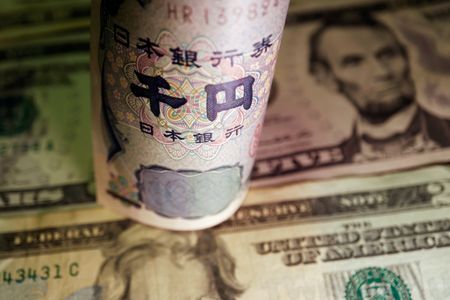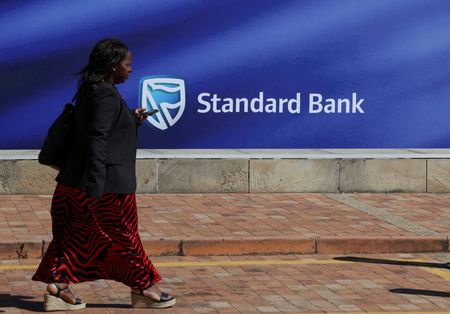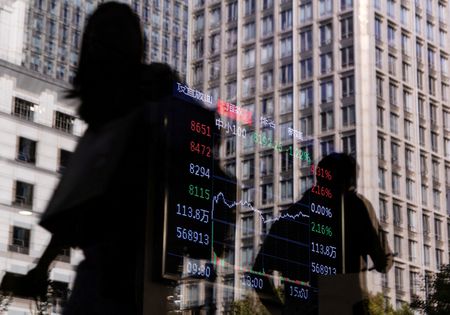By Karen Brettell
NEW YORK (Reuters) -The U.S. dollar gained on the euro and yen on Wednesday as traders evaluated what a flood of economic releases will mean for Federal Reserve interest rate policy if the government votes on Wednesday to reopen, as is expected.
The Japanese yen, meanwhile, reached a nine-month low against the greenback on concerns that the new Japanese government will seek to influence the country’s central bank into delaying rate increases.
The U.S. House of Representatives will try to end the longest government shutdown in U.S. history on Wednesday, with a vote on a stopgap funding package to restart disrupted food assistance, pay hundreds of thousands of federal workers and revive a hobbled air-traffic control system.
The reopening will lead to an avalanche of economic data releases that were delayed due to the shutdown, including the closely watched monthly jobs report.
“We’re going to be getting a fresh round of data dumped on us after a quiet period, so I think there’s a lot of potential for movement,” said Eric Theoret, FX strategist at Scotiabank in Toronto.
Fed Chair Jerome Powell said last month that a cut at the U.S. central bank’s December meeting is not certain, and Fed policymakers are divided on whether to continue easing policy as inflation remains relatively elevated.
Fed funds futures traders are pricing in 64% odds of a December rate reduction.
The dollar index, which measures the greenback against a basket of currencies including the yen and the euro, rose 0.19% to 99.63, with the euro down 0.07% at $1.1572.
U.S. Treasury Secretary Scott Bessent on Wednesday said Americans would see “substantial announcements” in coming days aimed at lowering the prices of products like coffee, bananas and other items not grown in the United States.
The yen dropped after Japanese Prime Minister Sanae Takaichi expressed her administration’s preference for interest rates to stay low and asked for close coordination with the Bank of Japan.
She also has asked BOJ Governor Kazuo Ueda to report regularly to the government’s Council on Economic and Fiscal Policy.
“Markets are taking that as maybe some kind of soft influence,” said Theoret. “We’re still expecting a hike from the BOJ at the December meeting, but there’s been some increased concerns that maybe we could see it get pushed out to the next meeting in January.”
Japanese Finance Minister Satsuki Katayama, meanwhile, gave a new verbal warning on yen weakness, noting “one-sided and rapid movements in the foreign exchange market.”
“The effect of verbal intervention is not as significant as it once was,” said Mohamad Al-Saraf, FX strategist at Danske Bank. “For Japanese authorities to really strengthen the yen, they need to do real intervention, which could be a possibility over the next couple of months.”
Against the Japanese yen, the dollar strengthened 0.5% to 154.92 and earlier reached 155.04, the highest since February 4.
Sterling weakened 0.43% to $1.3093. The Aussie strengthened 0.15% to $0.6535.
A top Australian central banker said on Wednesday that there was increasing debate about whether the current cash rate of 3.6% is restrictive enough to keep inflation in check, adding that the question is critical for the policy outlook.
In cryptocurrencies, bitcoin gained 1.50% to $104,186.
(Reporting by Karen Brettell; Additional reporting by Samuel Indyk and Rae Wee; editing by Toby Chopra, Mark Heinrich and Diane Craft)











